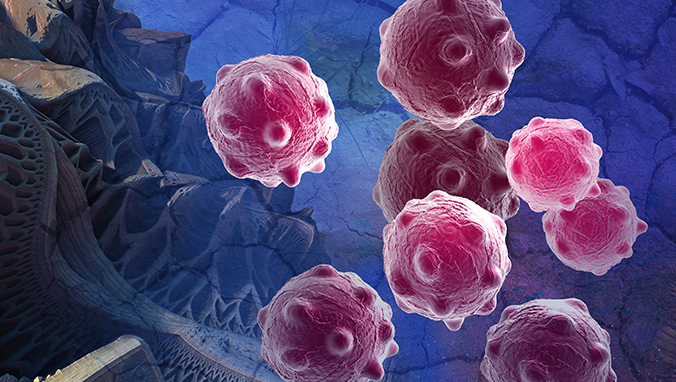Is complex hyperplasia a cancer?
Complicated hyperplasia often appears in the endometrium. This complicated pathological change is often a pre-symptom of some diseases, so attention should be paid to it. The organic disease of uterine complex hyperplasia is usually due to reproductive endocrine. As a result, it is closely related to long-term estrogen without confrontational stimulation, so is complex hyperplasia a cancer?

Recurrent endometrial hyperplasia, with obvious precancerous biological behavior of endometrial cancer , Especially moderate to severe dysplasia, which responds poorly and slowly to progesterone medication, and has the characteristic of possible relapse after drug withdrawal. However, the occurrence of complex hyperplasia is not necessarily cancer, and it needs comprehensive evaluation to confirm whether it is eventually cancer.
Recurrent endometrial hyperplasia is based on the original endometrial hyperplasia. The symptoms are still abnormal uterine bleeding, including increased menstrual blood volume, bleeding during menstruation, irregular uterine bleeding, or in Irregular uterine bleeding during non-antagonistic estrogen supplementation and postmenopausal uterine bleeding.
The definitive diagnosis of recurrent endometrial hyperplasia relies on re-intimal histological examination, and the required histological specimens need to be obtained by endometrial biopsy. Diagnostic hysteroscopy has the advantage of obtaining specimens when ordinary endometrial biopsy specimens fail to obtain specimens, or when the specimens obtained fail to obtain sufficient diagnostic evidence. In addition, if endometrial polyps are found in the examination, or there are endometrial hyperplasia in scattered lesions, endometrial biopsy under hysteroscopy is also required to make the obtained histological specimens more meaningful.
Because progesterone can resist the mitotic effect caused by estrogen and induce secondary differentiation. Therefore, progesterone is a drug treatment method that can effectively relieve the atypical endometrial hyperplasia, including continuous oral progesterone or topical progesterone in the uterine cavity. Progesterone treatment is not recommended for periodic oral progesterone treatment, because compared with continuous medication or continuous LNG-IUS, the effect of periodic medication to induce remission is not good.
Related Articles

- Can borderline tumors be cured?
- Borderline ovarian tumor (BoT) is a low-grade potentially malignant ovarian tumor, accounting for 10% to 15% of ovarian epithelial tumors. BOT occurs predominantly in women of childbearing
- 2020-07-24

- What is cervical cancer
- What is cervical cancer? Cervical cancer, also known as cervical cancer, refers to a malignant tumor that occurs at the junction of the squamous epithelial cells of the cervical vagina or t
- 2020-07-24

- How long can uterine cancer survive
- How long can uterine cancer survive after uterine cancer resection? Uterine cancer is very harmful to women’s health. It is one of the most common malignant tumors in gynecology. It is more
- 2020-07-24

- The best chemotherapy for cervical cancer
- What is the best chemotherapy for cervical cancer? Gynecological tumors are a major disease that threatens the health of women, and everyone needs to do a good job in daily life. Cervical c
- 2020-07-24

- Intraepithelial neoplasia grade 2 to cancer takes several years
- Intraepithelial neoplasia grade 2 is a moderate lesion. It usually takes 5 to 8 years to develop into a cancer, and surgery needs to be performed in time.
- 2020-07-24

- Early symptoms of endometrial cancer
- Endometrial cancer is a relatively common tumor in gynecology. The cure rate of surgery and radiotherapy and chemotherapy can reach 70% but the characteristics of malignant tumor
- 2020-07-24
